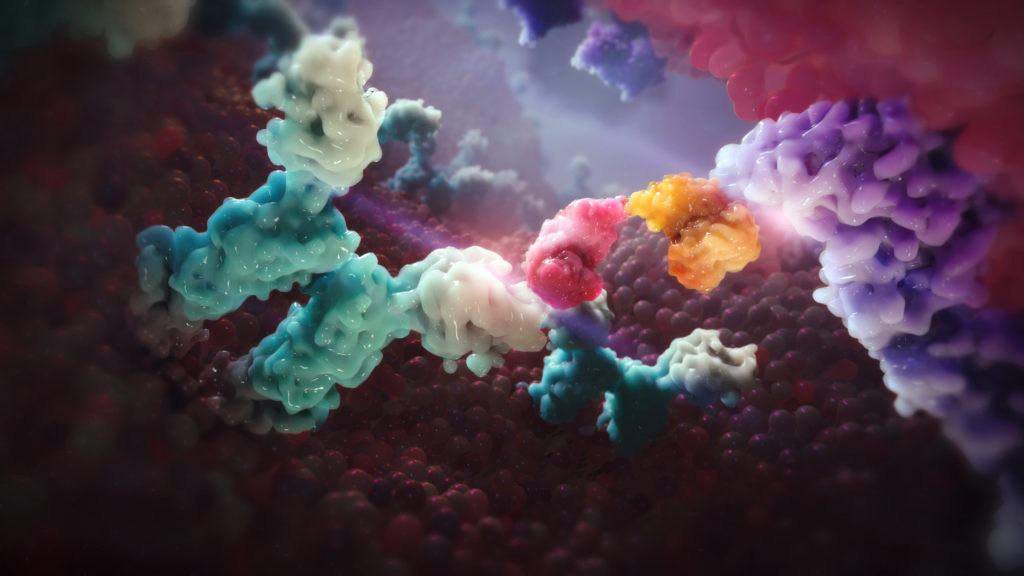The global Bispecific Antibodies Market is estimated to be valued at USD 0.52 Bn in 2022 and is expected to exhibit a CAGR of 7.0% over the forecast period 2023-2030, as highlighted in a new report published by Coherent Market Insights.
A) Market Overview:
Bispecific antibodies are innovative therapeutic proteins that have the ability to bind to two different epitopes simultaneously. These antibodies offer several advantages over traditional monoclonal antibodies, including increased efficacy, improved specificity, and enhanced targeting of cancer cells. The growing need for targeted therapies and personalized medicine is driving the demand for bispecific antibodies, as they have the potential to revolutionize the treatment of various diseases, including cancer, autoimmune disorders, and infectious diseases.
B) Market Key Trends:
One key trend in the bispecific antibodies market is the increasing focus on immuno-oncology therapies. Bispecific antibodies have shown promising results in the field of cancer immunotherapy by enhancing the activation of immune cells, such as T cells and natural killer cells, to effectively target tumor cells. For example, the bispecific antibody blinatumomab has been approved by the FDA for the treatment of relapsed or refractory B-cell precursor acute lymphoblastic leukemia. This trend is expected to drive the growth of the market as more pharmaceutical companies invest in the development of bispecific antibodies for cancer immunotherapy.
C) Porter’s Analysis:
– Threat of new entrants:
The Bispecific Antibodies Market is highly competitive, with several established pharmaceutical companies and biotechnology firms dominating the market. The high costs and time required for the development and approval of bispecific antibodies act as barriers to entry for new players.
– Bargaining power of buyers:
The bargaining power of buyers is moderate in the bispecific antibodies market. Buyers, such as hospitals and healthcare providers, have the option to choose from a wide range of bispecific antibodies available in the market.
– Bargaining power of suppliers:
The bargaining power of suppliers is moderate to high in the bispecific antibodies market. The market relies on a few key suppliers for the production of antibodies, and any disruptions in the supply chain can impact the availability and pricing of bispecific antibodies.
– Threat of new substitutes:
The threat of new substitutes is low in the bispecific antibodies market, as bispecific antibodies offer unique advantages over other treatment options, such as increased specificity and enhanced targeting.
– Competitive rivalry:
The bispecific antibodies market is characterized by intense competition among key players. Companies are investing in research and development activities to develop innovative bispecific antibodies and gain a competitive edge in the market.
D) Key Takeaways:
– The global bispecific antibodies market is expected to witness high growth, exhibiting a CAGR of 7.0% over the forecast period, due to increasing demand for targeted therapies and personalized medicine.
– In terms of regional analysis, North America is expected to dominate the market, followed by Europe and Asia Pacific. The presence of major pharmaceutical companies, well-established healthcare infrastructure, and increasing investments in research and development activities are driving the growth of the market in these regions.
– Key players operating in the global bispecific antibodies market are Amgen, Inc., Bayer AG, Dow Pharmaceutical Solutions, ImmunGene, Inc., Immunocore Limited, Merck & Co., Inc., Novartis AG, Pfizer, Inc., and F. Hoffmann-La Roche AG. These companies are focusing on strategic partnerships, collaborations, and mergers and acquisitions to strengthen their market position and expand their product portfolio.
In conclusion, the global bispecific antibodies market is expected to witness significant growth in the coming years. The increasing demand for targeted therapies and the promising results of bispecific antibodies in the field of cancer immunotherapy are driving the market growth. However, the market is highly competitive, and the high costs and time required for development and approval pose challenges to new entrants. Nonetheless, with the continued investment in research and development, the market is poised for substantial growth and innovation in the future.



